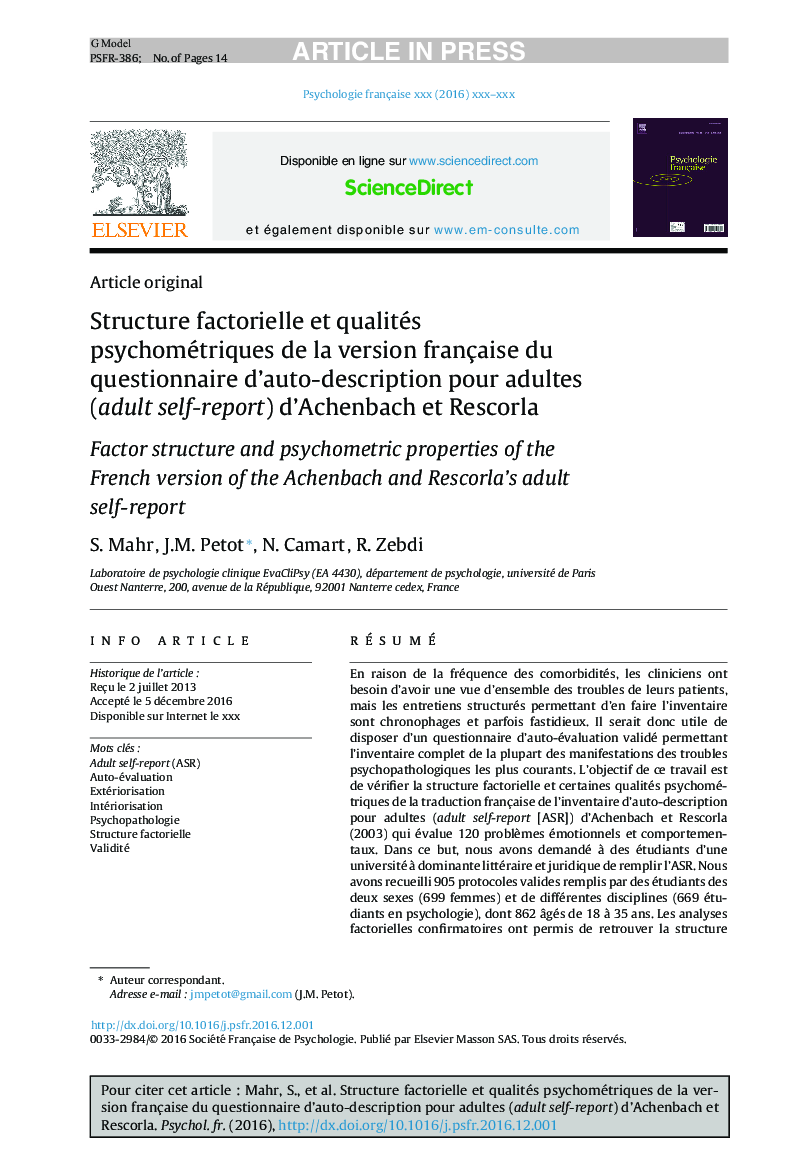| Article ID | Journal | Published Year | Pages | File Type |
|---|---|---|---|---|
| 6817380 | Psychologie Franaise | 2018 | 14 Pages |
Abstract
Because of the frequent comorbidities, clinicians need to get a comprehensive picture of the behavioral and emotional problems presented by their patients, but structured interviews allowing for such a survey are time consuming and sometimes tedious, and no French language self-report questionnaire is currently available. The aim of the present study was to verify the factorial structure and some psychometric properties of the French version of the Achenbach and Rescorla's (2003) adult self-report (ASR), which is designed to assess 120Â behavioral and emotional problems. We collected ASR forms completed by 905Â students enrolled in a university having schools of humanities, social sciences, sports, laws and economics (699Â women, 669Â students in psychology, 862Â aged 18-35Â years). The confirmatory factor analyses yielded the expected eight-factor structure (RMSEAÂ =Â .037; CFIÂ =Â .931). The internal consistency was similar to the original, and the test-retest reliability was satisfactory. French subjects, especially men, scored higher than their American counterparts on several scales, but the effect sizes were small to medium. French women and men's scores differed only on the Rule-Breaking Behavior scale, with men scoring higher; however, students in psychology, whichever was their gender, scored higher than other students on scales measuring internalizing problems and attention problems. Despite some limitations, the main of which is that all participants were students from the same university, these results speak in favor of the use of the French adult self-report in both research and clinical practice.
Keywords
Related Topics
Social Sciences and Humanities
Psychology
Psychology (General)
Authors
S. Mahr, J.M. Petot, N. Camart, R. Zebdi,
